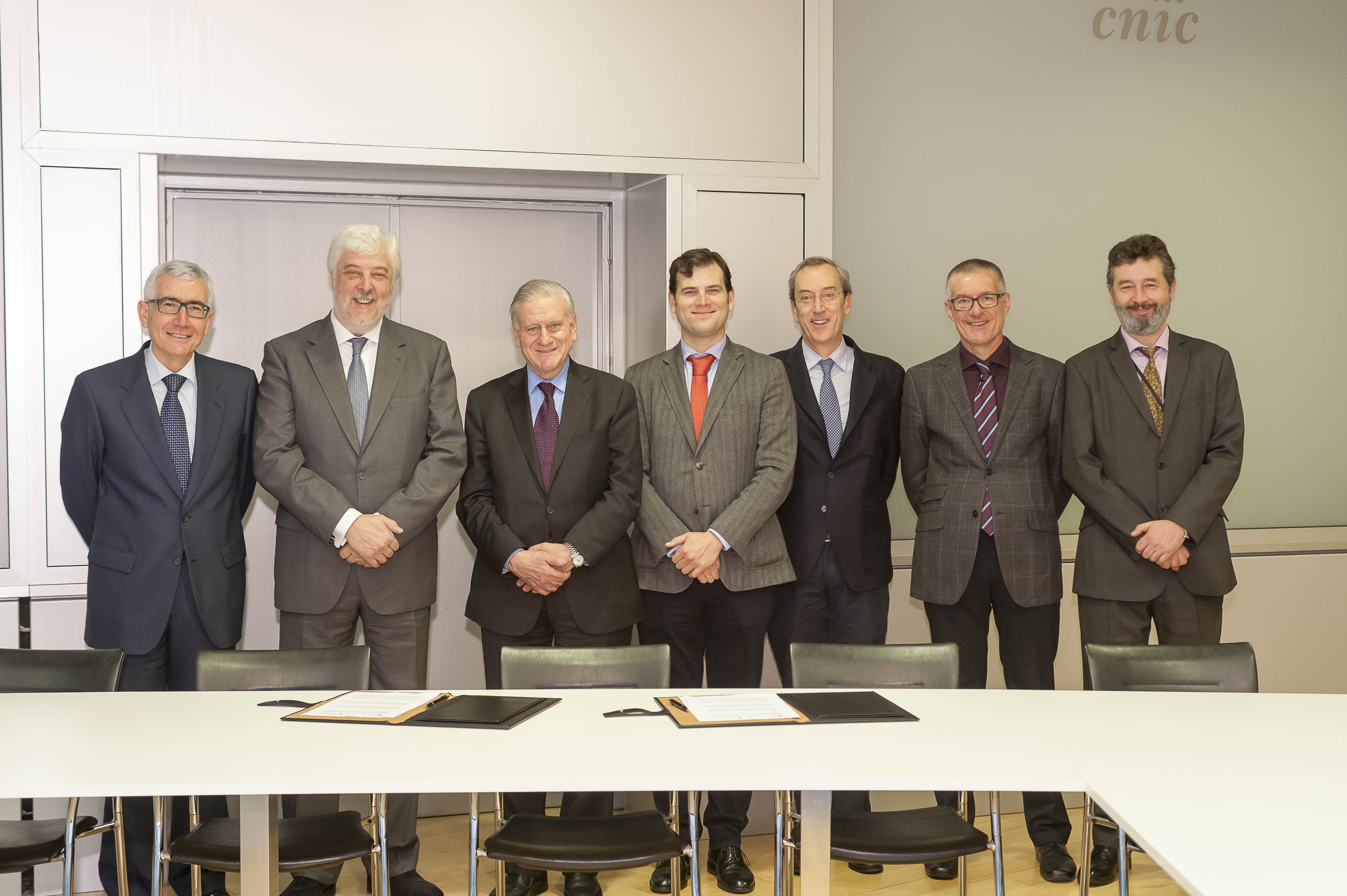CNIC and the SEC promote cardiovascular research among young doctors
The Spanish Society of Cardiology (SEC) and The Centro Nacional de Investigaciones Cardiovasculares Carlos III (CNIC) have created an ambitious joint plan of postgraduate training for cardiologists in order to promote good quality research in the cardiovascular field
The Centro Nacional de Investigaciones Cardiovasculares Carlos III (CNIC) y la Sociedad Española de Cardiología (SEC) and the The Spanish Society of Cardiology (SEC) have introduced a new way of collaboration which is taking place among both entities, a plan of postgraduate training for doctors specialized in cardiology.
For Dr. Andrés Íñiguez, president of the SEC, “this project responds to our society’s commitment with excellence and the promotion of quality in the cardiology services in our country. There is no quality assistance without quality of research. We are very pleased to have been able to carry out such an ambitious plan together with one of the world’s leading centers of cardiovascular research.”
On his behalf, Dr. Valentín Fuster, General Director of CNIC, points out that “the excellence in research, effective transnational medicine, and training are basic pillars of CNIC. Since its creation, the center has made an exceptional effort to identify and train the most talented and outstanding individuals in cardiovascular research. This effort is coordinated under the umbrella of the center’s global training program, the CNIC-YOUTH Training Program, which covers all levels from secondary education to postdoctoral training and that of medical and scientific professionals.”
Borja Ibáñez, Director of the CNIC’s Department of Clinical Research and cardiologist at the Fundación Jimenez Díaz University Hospital in Madrid, who directly supervises the three training programs for young cardiologists, comments that, “these training programs have different objectives according to the training stage of the participants. In the past, similar programs have achieved important results and currently there are cardiologists in different national and international hospitals that have a permanent link to CNIC through concrete projects that began to take shape during their time at our center.”
The Training Program is divided into three distinct programs, all of which have already opened their application processes, and can be done through the CNIC website: www.cnic.es.
CARDIOYOUTH
The objective of this program is to create a profile of cardiologist-researcher of excellence through a specific training in statistics and methodology, clinical and transnational training in the latest techniques of basic research used in cardiovascular biomedicine, all of which are focused in the cardiology specialty. This will be a two year training program with an additional third year. The first year will be in the United Kingdom studying a Masters in statistics and methodology at the prestigious London School of Hygiene and Tropical Medicine. Under the direct supervision of Professor Stuart Pocock, world leader in this field. The second year will be at CNIC, integrated in a research group. The third year is optional and could include 25% of the time dedicated to the CARDIOYOUTH program.
This program aims to train the future cardiologist researchers and integrate them in a network formed by national hospitals and CNIC.
INVESMIR
The purpose of this program (with a duration of between four to six months) is to complete the training of the cardiology residents in their last years of the MIR training, through a project of research at the CNIC laboratories, under the supervision of a scientist.
The eight resident doctors chosen by the SEC and CNIC will also have the opportunity to establish links in order to continue to develop their research projects at their respective National Health Centers counting with the support of the SEC and CNIC, even after they finish their training.
The third program will train 20 professional doctors during their first resident stages in the MIR cardiology program, offering them the opportunity to be in touch with cardiovascular research at the CNIC laboratories.
This way, the resident students can get to know first-hand the latest techniques in biomedical research that are being researched at the center’s laboratories under the supervision of one of its scientists. Furthermore, they will also receive a theoretical training about cardiovascular research.











